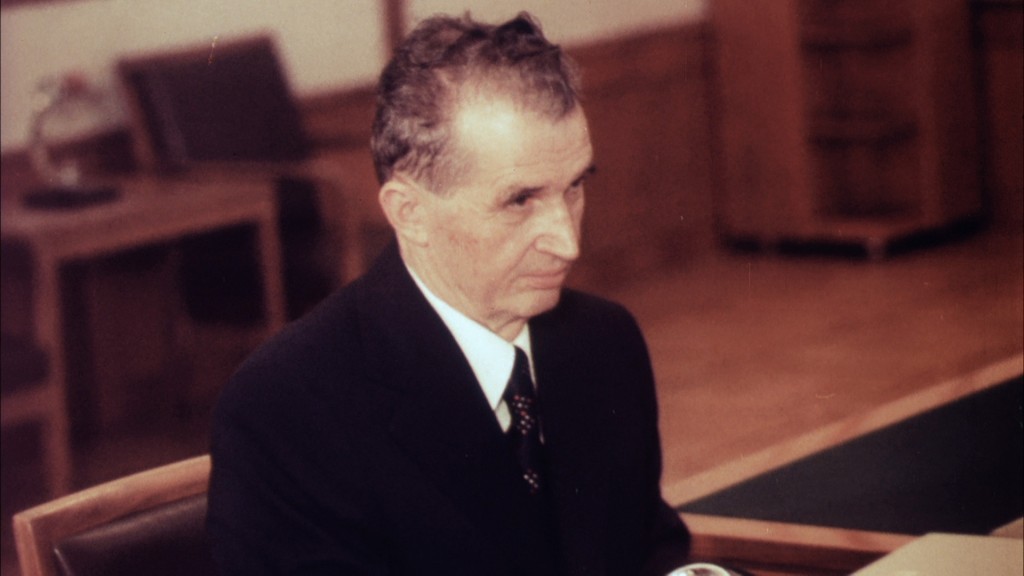Fri 24 Sep 2010
NYFF ’10: The Autobiography of Nicolae Ceausescu
Posted by Ethan under Film Festivals, Film Review, NYC Film Critic
Comments Off on NYFF ’10: The Autobiography of Nicolae Ceausescu
Directed by Anrei Ujica
***
The title of this sweeping three-hour documentary recounting the history of Romania under the reign of Nicolae Ceausescu more or less sums up the film’s strengths and limitations.
Opening with images of the defiant dictator at his 1989 court martial—which would conclude with his execution—the movie subsequently flashes back to the mid-‘60s and tracks his twenty-five year career as the then-Communist country’s ruler entirely through archival news footage, propaganda films and even a few quiet domestic scenes, most notably shots of him partaking in a vigorous game of volleyball with a few friends. (That footage reveals him to be a terrible athlete, by the way—it’s hard to tell if everyone around him is that much worse or if they’re just deliberately throwing the match to avoid pissing their leader off.)
Director Anrei Ujica’s stated goal is to present this nearly three-decade period as Ceausescu himself would have preferred it to be remembered. That’s why the emphasis is entirely on official functions, state visits and extravagant rallies populated with smiling, waving, happy citizens. Nowhere are there references to the country’s economic troubles, as well as such strict social laws as Ceausescu’s infamous abortion ban, a situation that was memorably explored in Cristian Mungiu’s wrenching 2007 film, 4 Months, 3 Weeks and 2 Days. At the same time though, if you examine the footage more closely, you can see hints of the larger problems that exist beneath the state-approved propaganda. For example, the large apartment buildings and bustling construction sites that are held up as signs of progress in the ‘60s start to look grim and careworn by the early ‘80s. Ceausescu’s on-the-spot visits to various stores and factories also grow less triumphant as the years pass. Towards the end of the film (and his time in power), he turns up at a bakery and half-heartedly examines a few loaves of bread before mumbling some words of encouragement to the staff and hurrying back to his car.
Scenes like this speak to how effectively Ujica has been able to craft a compelling narrative arc out of existing footage. But his conceit for the movie is not without its drawbacks.  For one thing, in an actual autobiography the subject has the opportunity to impart his or her thoughts about past events directly to the reader. Since Ceausescu is dead, he can’t exactly share his memories about, say, the two trips to North Korea that we see here. Furthermore, because the bulk of the footage that Ujica had access to was shot for propaganda rather than journalistic purposes, there’s no attempt to place the events being depicted in any kind of a larger context. The director has also opted to forego any present-day interviews with historians or Ceausescu contemporaries, a decision that obviously fits in with the first-person autobiographical approach he’s pursuing, but further deprives the audience of helpful background information about the leader and his nation. Then again, it doesn’t appear that Ujica set out to inform viewers with this particular documentary. Rather, The Autobiography of Nicolae Ceausescu seems intended as a more impressionistic take on history, one in which a deposed and disgraced tyrant can imagine himself as a great man and wise leader.
The Autobiography of Nicolae Ceausescu screens at the NYFF on Sunday, October 9.


No Responses to “ NYFF ’10: The Autobiography of Nicolae Ceausescu ”
Sorry, comments for this entry are closed at this time.